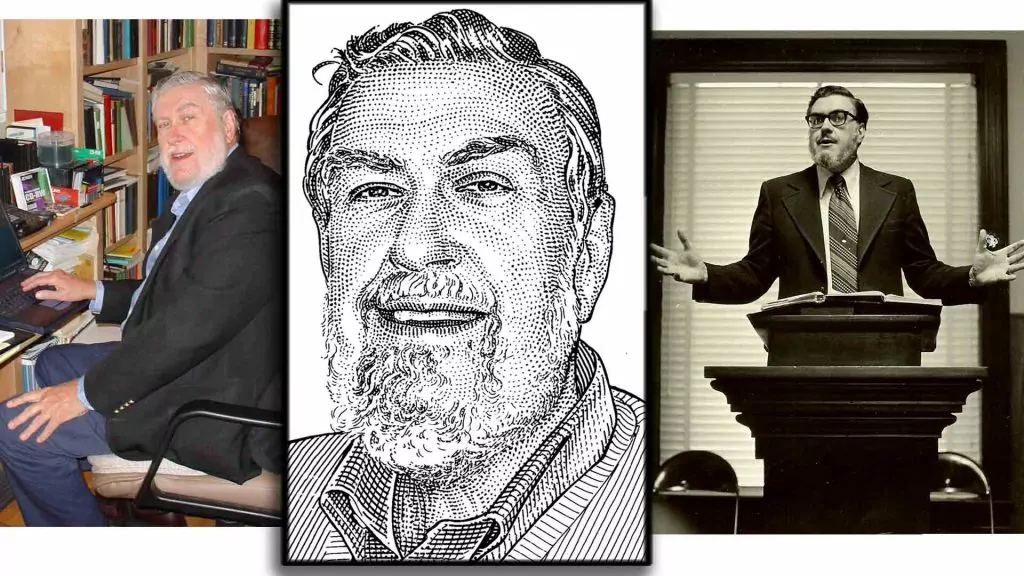The common word on the streets today is “tolerance.” That idea, however, is wrong – very wrong… dead wrong! There’s no such thing as tolerance. No one is tolerant. Tolerance is a myth; indeed, it is a dangerous myth. Anyone who claims to stand for tolerance, anyone who says he is tolerant – whether he’s aware of it or not – is lying.
“Wait a minute. I disagree. I’m tolerant, no matter what you say. And, furthermore, I resent being called a liar.”
You’re a liar!
“Now, hold on. How can you say that? You don’t even know me. How can you call me a liar?”
Because you’re lying — that’s what liars do.
“It simply isn’t right of you to pre-judge me, your reader, when you have never met me.”
Oh? Why not? You seem to be agitated over a simple statement that I made out there in the blue. I didn’t ask you to chime in. You put yourself in the category of liars.
“I can’t have people going around calling others liars without challenging them. After all, by implication, since I’m a tolerant person, you included me.”
If you are truly tolerant of differing points of view you wouldn’t go about challenging those who say something that disagrees with yours. If you’re truly tolerant, then why don’t you cheerfully agree that I have every right to go about telling your friends and relatives that you’re a liar?
“That wouldn’t be right. I don’t like people to make unfounded judgments. And, besides it would be a nasty thing to do.”
Are you saying that you’re intolerant of such a claim? Or of anyone who makes it?
“No. I’m tolerant of views that differ from mine.”
Then, you wouldn’t mind if I talk to your friends — right?
“Wrong.”
What makes it wrong to do so?
“The fact that it’s simply untrue.”
But I say that it is true.
“Let’s stop this bickering right now. Would you be satisfied if I conceded that you have the right to be wrong?”
Ah! So, you’re so tolerant that you are ready to tolerate “error “to make it go away?
“That isn’t so. I accept only those things that are true.”
So you don’t tolerate error? It doesn’t matter to you whether others are in error or not so long as you are right? Does that mean you are tolerant of error in others and, therefore, of what you call my lies and my position of intolerance?
“I want others to know the truth too.”
Then, why don’t you accept the truth that you’re a liar?
“Because it’s not true.”
‘Tis.
“Taint.”
‘Tis.
“Prove it”
You claim that you’re tolerant when we know that it’s not true. So you say/deny that you tolerate error in yourself/others.
“There you go – calling me a liar again! And, I certainly don’t know that it’s true.”
All this discussion and you haven’t yet gotten the point? I say you’re a liar simply because you’ve already demonstrated that you are. You claim to accept truth alone, yet you won’t admit that you’re a liar or that you’re intolerant. That’s two lies right there.
“You’re impossible!”
That’s number three.
“OK, there’s one thing I can’t tolerate – you! You’re intolerable.”
Good. First thing you’ve said that’s right so far. You’re coming along. But since it’s true, that too proves you’re a liar. You said that you are tolerant, but let me ask you, are you intolerant not only of my intolerance but of intolerance in general? Seems that a tolerant person would have to be in order to be consistent.
“Well…”
See, that’s the reason why anyone who claims to be tolerant isn’t. You said that you resented being called a liar. That sounds like an intolerant attitude to me. You can’t tolerate intolerance or you’re tolerating what you claim to abhor. Put it the other way: you claim to abhor what you ought to tolerate – if you were truly tolerant. That position is contradictory in itself. To be intolerant of intolerance is contradictory. You can’t have it both ways. Of course, you can lie about it. Let’s move on. Why do you think that intolerance is dangerous?
“Don’t think that it is.”
Every Christian does. Are you a Christian?
“Yes.”
Jesus said that He was the way to the Father (if you remember) and that nobody can come to the Father but by Him. The apostle also said that there is no other Name under the sky by which a person may be saved—but only by Jesus’ Name.
“Yes, but . . .”
No ‘buts’ about it, so far as the Bible is concerned. No one can be saved except by Jesus Christ. All other ways are erroneous, indeed, nothing but lies. So they are dangerous, leading people astray, away from the only true way to God. Right?
“But I tolerate other people’s views.”
Why? That’s dangerous. It’s dangerous to them. The idea again is that you can tolerate error in others, but not in yourself, right? It doesn’t matter what happens to them – just so you can be tolerant. Is that it?
“That’s not fair.”
Who’s talking about fairness? By what standard do you determine whether or not something is fair? But, let’s go on rather than getting into a round of that. Do you believe in Christian missions?
“Of course.”
Then you believe in intolerance. The whole concept of missions is based on a doctrine of intolerance—intolerance of the evil religions of men that lead them to eternal damnation. Moreover, and of greater importance, these false religions dishonor the true God. Missionaries believe that false beliefs must be destroyed before they destroy those who hold them. God doesn’t tolerate false belief or unbelief. Read Romans 1.
“I have read it. But we can be polite.”
Of course, often we can. But who’s talking about politeness? And by the way, tell me, did Jesus tolerate the Pharisees and the Sadducees?
“Well . . .”
Do you remember some of the things He said to them and about them?
“Certainly.”
Was Jesus always polite when he did? Why are you tolerant when Jesus wasn’t? You’re a Christian. Follow Him!
“I give up. You’re hopeless!”
You mean intolerant?
Dr. Jay Adams (1929-2020) was the father of modern biblical counseling and authored more than 100 books. This is from his blog which can be found at Nouthetic.org. This first appeared in the March 2009 issue.















